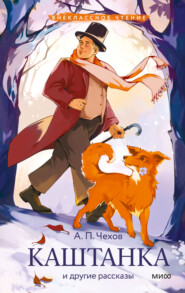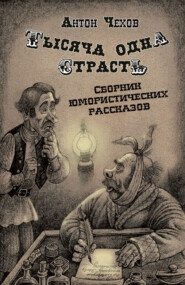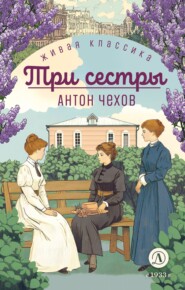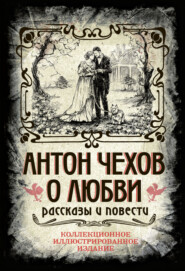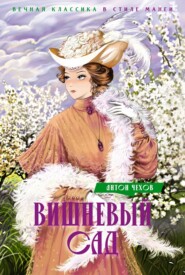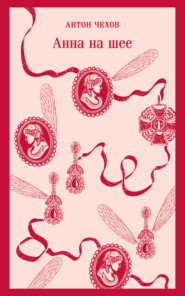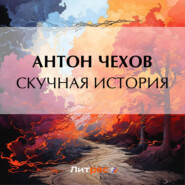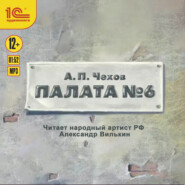По всем вопросам обращайтесь на: info@litportal.ru
(©) 2003-2025.
✖
Love and Other Stories
Настройки чтения
Размер шрифта
Высота строк
Поля
"I clasped her tightly in my arms. All at once she broke into hysterical tears. And her face had the same senseless blank expression that I had seen in the summer-house when I lighted the matches. Without asking her consent, preventing her from speaking, I dragged her forcibly towards my hotel. She seemed almost swooning and did not walk, but I took her under the arms and almost carried her… I remember, as we were going up the stairs, some man with a red band in his cap looked wonderingly at me and bowed to Kisotchka.."
Ananyev flushed crimson and paused. He walked up and down near the table in silence, scratched the back of his head with an air of vexation, and several times shrugged his shoulders and twitched his shoulder-blades, while a shiver ran down his huge back. The memory was painful and made him ashamed, and he was struggling with himself.
"It's horrible!" he said, draining a glass of wine and shaking his head. "I am told that in every introductory lecture on women's diseases the medical students are admonished to remember that each one of them has a mother, a sister, a fiancée, before undressing and examining a female patient… That advice would be very good not only for medical students but for everyone who in one way or another has to deal with a woman's life. Now that I have a wife and a little daughter, oh, how well I understand that advice! How I understand it, my God! You may as well hear the rest, though… As soon as she had become my mistress, Kisotchka's view of the position was very different from mine. First of all she felt for me a deep and passionate love. What was for me an ordinary amatory episode was for her an absolute revolution in her life. I remember, it seemed to me that she had gone out of her mind. Happy for the first time in her life, looking five years younger, with an inspired enthusiastic face, not knowing what to do with herself for happiness, she laughed and cried and never ceased dreaming aloud how next day we would set off for the Caucasus, then in the autumn to Petersburg; how we would live afterwards.
"'Don't worry yourself about my husband,' she said to reassure me. 'He is bound to give me a divorce. Everyone in the town knows that he is living with the elder Kostovitch. We will get a divorce and be married.'
"When women love they become acclimatised and at home with people very quickly, like cats. Kisotchka had only spent an hour and a half in my room when she already felt as though she were at home and was ready to treat my property as though it were her own. She packed my things in my portmanteau, scolded me for not hanging my new expensive overcoat on a peg instead of flinging it on a chair, and so on.
"I looked at her, listened, and felt weariness and vexation. I was conscious of a slight twinge of horror at the thought that a respectable, honest, and unhappy woman had so easily, after some three or four hours, succumbed to the first man she met. As a respectable man, you see, I didn't like it. Then, too, I was unpleasantly impressed by the fact that women of Kisotchka's sort, not deep or serious, are too much in love with life, and exalt what is in reality such a trifle as love for a man to the level of bliss, misery, a complete revolution in life… Moreover, now that I was satisfied, I was vexed with myself for having been so stupid as to get entangled with a woman whom I should have to deceive. And in spite of my disorderly life I must observe that I could not bear telling lies.
"I remember that Kisotchka sat down at my feet, laid her head on my knees, and, looking at me with shining, loving eyes, asked:
"'Kolya, do you love me? Very, very much?'
"And she laughed with happiness… This struck me as sentimental, affected, and not clever; and meanwhile I was already inclined to look for 'depth of thought' before everything.
"'Kisotchka, you had better go home,' I said, or else your people will be sure to miss you and will be looking for you all over the town; and it would be awkward for you to go to your mother in the morning.'
"Kisotchka agreed. At parting we arranged to meet at midday next morning in the park, and the day after to set off together to Pyatigorsk. I went into the street to see her home, and I remember that I caressed her with genuine tenderness on the way. There was a minute when I felt unbearably sorry for her, for trusting me so implicitly, and I made up my mind that I would really take her to Pyatigorsk, but remembering that I had only six hundred roubles in my portmanteau, and that it would be far more difficult to break it off with her in the autumn than now, I made haste to suppress my compassion.
"We reached the house where Kisotchka's mother lived. I pulled at the bell. When footsteps were heard at the other side of the door Kisotchka suddenly looked grave, glanced upwards to the sky, made the sign of the Cross over me several times and, clutching my hand, pressed it to her lips.
"'Till to-morrow,' she said, and disappeared into the house.
"I crossed to the opposite pavement and from there looked at the house. At first the windows were in darkness, then in one of the windows there was the glimmer of the faint bluish flame of a newly lighted candle; the flame grew, gave more light, and I saw shadows moving about the rooms together with it.
"'They did not expect her,' I thought.
"Returning to my hotel room I undressed, drank off a glass of red wine, ate some fresh caviare which I had bought that day in the bazaar, went to bed in a leisurely way, and slept the sound, untroubled sleep of a tourist.
"In the morning I woke up with a headache and in a bad humour.
Something worried me.
"'What's the matter?' I asked myself, trying to explain my uneasiness.
'What's upsetting me?'
"And I put down my uneasiness to the dread that Kisotchka might turn up any minute and prevent my going away, and that I should have to tell lies and act a part before her. I hurriedly dressed, packed my things, and left the hotel, giving instructions to the porter to take my luggage to the station for the seven o'clock train in the evening. I spent the whole day with a doctor friend and left the town that evening. As you see, my philosophy did not prevent me from taking to my heels in a mean and treacherous flight..
"All the while that I was at my friend's, and afterwards driving to the station, I was tormented by anxiety. I fancied that I was afraid of meeting with Kisotchka and a scene. In the station I purposely remained in the toilet room till the second bell rang, and while I was making my way to my compartment, I was oppressed by a feeling as though I were covered all over with stolen things. With what impatience and terror I waited for the third bell!
"At last the third bell that brought my deliverance rang at last, the train moved; we passed the prison, the barracks, came out into the open country, and yet, to my surprise, the feeling of uneasiness still persisted, and still I felt like a thief passionately longing to escape. It was queer. To distract my mind and calm myself I looked out of the window. The train ran along the coast. The sea was smooth, and the turquoise sky, almost half covered with the tender, golden crimson light of sunset, was gaily and serenely mirrored in it. Here and there fishing boats and rafts made black patches on its surface. The town, as clean and beautiful as a toy, stood on the high cliff, and was already shrouded in the mist of evening. The golden domes of its churches, the windows and the greenery reflected the setting sun, glowing and melting like shimmering gold… The scent of the fields mingled with the soft damp air from the sea.
"The train flew rapidly along. I heard the laughter of passengers and guards. Everyone was good-humoured and light-hearted, yet my unaccountable uneasiness grew greater and greater… I looked at the white mist that covered the town and I imagined how a woman with a senseless blank face was hurrying up and down in that mist by the churches and the houses, looking for me and moaning, 'Oh, my God! Oh, my God!' in the voice of a little girl or the cadences of a Little Russian actress. I recalled her grave face and big anxious eyes as she made the sign of the Cross over me, as though I belonged to her, and mechanically I looked at the hand which she had kissed the day before.
"'Surely I am not in love?' I asked myself, scratching my hand.
"Only as night came on when the passengers were asleep and I was left tête-à-tête with my conscience, I began to understand what I had not been able to grasp before. In the twilight of the railway carriage the image of Kisotchka rose before me, haunted me and I recognised clearly that I had committed a crime as bad as murder. My conscience tormented me. To stifle this unbearable feeling, I assured myself that everything was nonsense and vanity, that Kisotchka and I would die and decay, that her grief was nothing in comparison with death, and so on and so on.. and that if you come to that, there is no such thing as freewill, and that therefore I was not to blame. But all these arguments only irritated me and were extraordinarily quickly crowded out by other thoughts. There was a miserable feeling in the hand that Kisotchka had kissed… I kept lying down and getting up again, drank vodka at the stations, forced myself to eat bread and butter, fell to assuring myself again that life had no meaning, but nothing was of any use. A strange and if you like absurd ferment was going on in my brain. The most incongruous ideas crowded one after another in disorder, getting more and more tangled, thwarting each other, and I, the thinker, 'with my brow bent on the earth,' could make out nothing and could not find my bearings in this mass of essential and non-essential ideas. It appeared that I, the thinker, had not mastered the technique of thinking, and that I was no more capable of managing my own brain than mending a watch. For the first time in my life I was really thinking eagerly and intensely, and that seemed to me so monstrous that I said to myself: 'I am going off my head.' A man whose brain does not work at all times, but only at painful moments, is often haunted by the thought of madness.
"I spent a day and a night in this misery, then a second night, and learning from experience how little my philosophy was to me, I came to my senses and realised at last what sort of a creature I was. I saw that my ideas were not worth a brass farthing, and that before meeting Kisotchka I had not begun to think and had not even a conception of what thinking in earnest meant; now through suffering I realised that I had neither convictions nor a definite moral standard, nor heart, nor reason; my whole intellectual and moral wealth consisted of specialist knowledge, fragments, useless memories, other people's ideas – and nothing else; and my mental processes were as lacking in complexity, as useless and as rudimentary as a Yakut's… If I had disliked lying, had not stolen, had not murdered, and, in fact, made obviously gross mistakes, that was not owing to my convictions – I had none, but because I was in bondage, hand and foot, to my nurse's fairy tales and to copy-book morals, which had entered into my flesh and blood and without my noticing it guided me in life, though I looked on them as absurd..
Ananyev flushed crimson and paused. He walked up and down near the table in silence, scratched the back of his head with an air of vexation, and several times shrugged his shoulders and twitched his shoulder-blades, while a shiver ran down his huge back. The memory was painful and made him ashamed, and he was struggling with himself.
"It's horrible!" he said, draining a glass of wine and shaking his head. "I am told that in every introductory lecture on women's diseases the medical students are admonished to remember that each one of them has a mother, a sister, a fiancée, before undressing and examining a female patient… That advice would be very good not only for medical students but for everyone who in one way or another has to deal with a woman's life. Now that I have a wife and a little daughter, oh, how well I understand that advice! How I understand it, my God! You may as well hear the rest, though… As soon as she had become my mistress, Kisotchka's view of the position was very different from mine. First of all she felt for me a deep and passionate love. What was for me an ordinary amatory episode was for her an absolute revolution in her life. I remember, it seemed to me that she had gone out of her mind. Happy for the first time in her life, looking five years younger, with an inspired enthusiastic face, not knowing what to do with herself for happiness, she laughed and cried and never ceased dreaming aloud how next day we would set off for the Caucasus, then in the autumn to Petersburg; how we would live afterwards.
"'Don't worry yourself about my husband,' she said to reassure me. 'He is bound to give me a divorce. Everyone in the town knows that he is living with the elder Kostovitch. We will get a divorce and be married.'
"When women love they become acclimatised and at home with people very quickly, like cats. Kisotchka had only spent an hour and a half in my room when she already felt as though she were at home and was ready to treat my property as though it were her own. She packed my things in my portmanteau, scolded me for not hanging my new expensive overcoat on a peg instead of flinging it on a chair, and so on.
"I looked at her, listened, and felt weariness and vexation. I was conscious of a slight twinge of horror at the thought that a respectable, honest, and unhappy woman had so easily, after some three or four hours, succumbed to the first man she met. As a respectable man, you see, I didn't like it. Then, too, I was unpleasantly impressed by the fact that women of Kisotchka's sort, not deep or serious, are too much in love with life, and exalt what is in reality such a trifle as love for a man to the level of bliss, misery, a complete revolution in life… Moreover, now that I was satisfied, I was vexed with myself for having been so stupid as to get entangled with a woman whom I should have to deceive. And in spite of my disorderly life I must observe that I could not bear telling lies.
"I remember that Kisotchka sat down at my feet, laid her head on my knees, and, looking at me with shining, loving eyes, asked:
"'Kolya, do you love me? Very, very much?'
"And she laughed with happiness… This struck me as sentimental, affected, and not clever; and meanwhile I was already inclined to look for 'depth of thought' before everything.
"'Kisotchka, you had better go home,' I said, or else your people will be sure to miss you and will be looking for you all over the town; and it would be awkward for you to go to your mother in the morning.'
"Kisotchka agreed. At parting we arranged to meet at midday next morning in the park, and the day after to set off together to Pyatigorsk. I went into the street to see her home, and I remember that I caressed her with genuine tenderness on the way. There was a minute when I felt unbearably sorry for her, for trusting me so implicitly, and I made up my mind that I would really take her to Pyatigorsk, but remembering that I had only six hundred roubles in my portmanteau, and that it would be far more difficult to break it off with her in the autumn than now, I made haste to suppress my compassion.
"We reached the house where Kisotchka's mother lived. I pulled at the bell. When footsteps were heard at the other side of the door Kisotchka suddenly looked grave, glanced upwards to the sky, made the sign of the Cross over me several times and, clutching my hand, pressed it to her lips.
"'Till to-morrow,' she said, and disappeared into the house.
"I crossed to the opposite pavement and from there looked at the house. At first the windows were in darkness, then in one of the windows there was the glimmer of the faint bluish flame of a newly lighted candle; the flame grew, gave more light, and I saw shadows moving about the rooms together with it.
"'They did not expect her,' I thought.
"Returning to my hotel room I undressed, drank off a glass of red wine, ate some fresh caviare which I had bought that day in the bazaar, went to bed in a leisurely way, and slept the sound, untroubled sleep of a tourist.
"In the morning I woke up with a headache and in a bad humour.
Something worried me.
"'What's the matter?' I asked myself, trying to explain my uneasiness.
'What's upsetting me?'
"And I put down my uneasiness to the dread that Kisotchka might turn up any minute and prevent my going away, and that I should have to tell lies and act a part before her. I hurriedly dressed, packed my things, and left the hotel, giving instructions to the porter to take my luggage to the station for the seven o'clock train in the evening. I spent the whole day with a doctor friend and left the town that evening. As you see, my philosophy did not prevent me from taking to my heels in a mean and treacherous flight..
"All the while that I was at my friend's, and afterwards driving to the station, I was tormented by anxiety. I fancied that I was afraid of meeting with Kisotchka and a scene. In the station I purposely remained in the toilet room till the second bell rang, and while I was making my way to my compartment, I was oppressed by a feeling as though I were covered all over with stolen things. With what impatience and terror I waited for the third bell!
"At last the third bell that brought my deliverance rang at last, the train moved; we passed the prison, the barracks, came out into the open country, and yet, to my surprise, the feeling of uneasiness still persisted, and still I felt like a thief passionately longing to escape. It was queer. To distract my mind and calm myself I looked out of the window. The train ran along the coast. The sea was smooth, and the turquoise sky, almost half covered with the tender, golden crimson light of sunset, was gaily and serenely mirrored in it. Here and there fishing boats and rafts made black patches on its surface. The town, as clean and beautiful as a toy, stood on the high cliff, and was already shrouded in the mist of evening. The golden domes of its churches, the windows and the greenery reflected the setting sun, glowing and melting like shimmering gold… The scent of the fields mingled with the soft damp air from the sea.
"The train flew rapidly along. I heard the laughter of passengers and guards. Everyone was good-humoured and light-hearted, yet my unaccountable uneasiness grew greater and greater… I looked at the white mist that covered the town and I imagined how a woman with a senseless blank face was hurrying up and down in that mist by the churches and the houses, looking for me and moaning, 'Oh, my God! Oh, my God!' in the voice of a little girl or the cadences of a Little Russian actress. I recalled her grave face and big anxious eyes as she made the sign of the Cross over me, as though I belonged to her, and mechanically I looked at the hand which she had kissed the day before.
"'Surely I am not in love?' I asked myself, scratching my hand.
"Only as night came on when the passengers were asleep and I was left tête-à-tête with my conscience, I began to understand what I had not been able to grasp before. In the twilight of the railway carriage the image of Kisotchka rose before me, haunted me and I recognised clearly that I had committed a crime as bad as murder. My conscience tormented me. To stifle this unbearable feeling, I assured myself that everything was nonsense and vanity, that Kisotchka and I would die and decay, that her grief was nothing in comparison with death, and so on and so on.. and that if you come to that, there is no such thing as freewill, and that therefore I was not to blame. But all these arguments only irritated me and were extraordinarily quickly crowded out by other thoughts. There was a miserable feeling in the hand that Kisotchka had kissed… I kept lying down and getting up again, drank vodka at the stations, forced myself to eat bread and butter, fell to assuring myself again that life had no meaning, but nothing was of any use. A strange and if you like absurd ferment was going on in my brain. The most incongruous ideas crowded one after another in disorder, getting more and more tangled, thwarting each other, and I, the thinker, 'with my brow bent on the earth,' could make out nothing and could not find my bearings in this mass of essential and non-essential ideas. It appeared that I, the thinker, had not mastered the technique of thinking, and that I was no more capable of managing my own brain than mending a watch. For the first time in my life I was really thinking eagerly and intensely, and that seemed to me so monstrous that I said to myself: 'I am going off my head.' A man whose brain does not work at all times, but only at painful moments, is often haunted by the thought of madness.
"I spent a day and a night in this misery, then a second night, and learning from experience how little my philosophy was to me, I came to my senses and realised at last what sort of a creature I was. I saw that my ideas were not worth a brass farthing, and that before meeting Kisotchka I had not begun to think and had not even a conception of what thinking in earnest meant; now through suffering I realised that I had neither convictions nor a definite moral standard, nor heart, nor reason; my whole intellectual and moral wealth consisted of specialist knowledge, fragments, useless memories, other people's ideas – and nothing else; and my mental processes were as lacking in complexity, as useless and as rudimentary as a Yakut's… If I had disliked lying, had not stolen, had not murdered, and, in fact, made obviously gross mistakes, that was not owing to my convictions – I had none, but because I was in bondage, hand and foot, to my nurse's fairy tales and to copy-book morals, which had entered into my flesh and blood and without my noticing it guided me in life, though I looked on them as absurd..






